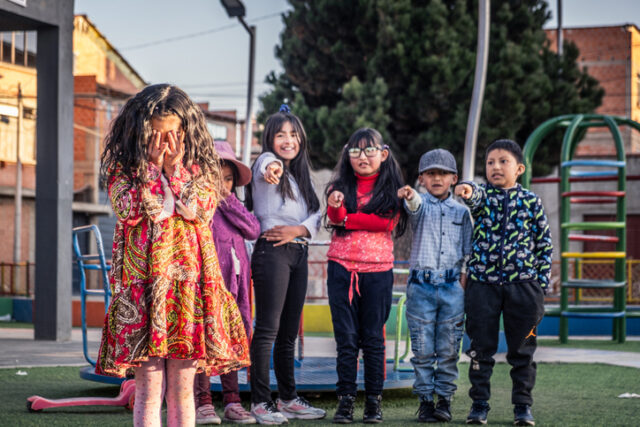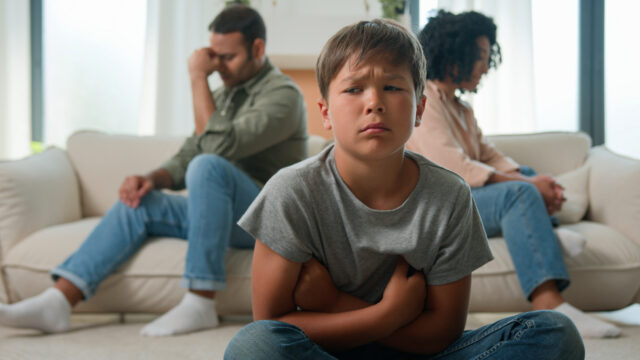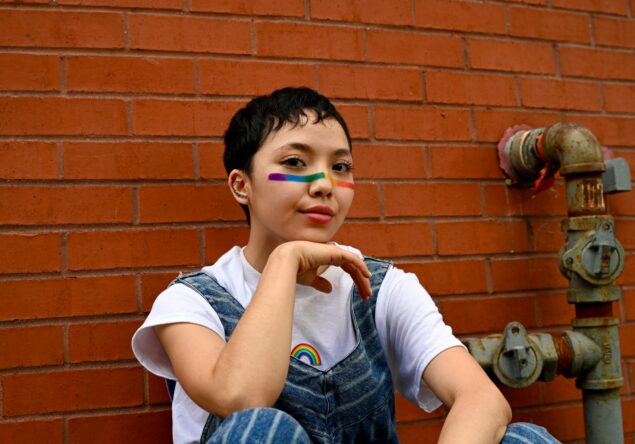So much of the advice we were fed as kids came from a place of tradition, not actual evidence.

Back then, adults passed down parenting mantras like gospel because their parents said it, and their parents before them. However, a lot of that so-called wisdom hasn’t aged well. What we were taught was “good” or “the right way” can now feel outdated, emotionally confusing, or just not useful in the world we live in today. Here’s just some of the advice we were told to follow that doesn’t really hold up anymore.
1. “If you ignore bullies, they’ll go away.”

This advice was handed out like a shield—stay quiet, don’t react, and the bullies will magically get bored. However, that’s not how it plays out in real life. Ignoring someone who’s being cruel often just makes you more of a target, not less of one.
We were taught not to “make a fuss” or bring attention to it, but that silence didn’t protect us. It just made us feel powerless. Real support looks like teaching kids how to speak up safely, get help, and recognise that they don’t deserve to be treated that way in the first place.
2. “Sharing is caring” (even when you don’t want to).

There’s nothing wrong with encouraging kindness, but we were often told to hand over our toys, snacks, or space without question. If you didn’t want to share, you were called selfish. The problem is, that blurred the line between generosity and people-pleasing. Being taught that saying “no” was rude left a lot of us with murky boundaries later on. The better lesson? It’s okay to choose when and how to share, and it’s also okay to say, “Not right now.”
3. “Hitting back makes you just as bad.”

Many of us were told never to fight back, no matter what. That if you retaliated—even in self-defence—you were sinking to their level. However, this message didn’t teach self-respect. It taught us to stay quiet, take it, and walk away while feeling defeated. There’s a big difference between starting trouble and protecting yourself. Knowing how to stand your ground doesn’t make you the villain. It makes you someone who’s learned how to value their own safety and voice.
4. “Respect adults, no matter what.”

This one was drilled into us early: if they’re older, they’re right. However, adults aren’t always kind, fair, or even safe. Telling kids to blindly obey someone just because of their age leaves too much room for power to be abused. Respect should be mutual. Kids need to be taught how to recognise authority, but also how to trust their instincts, say no when something feels off, and know that being younger doesn’t make them less worthy of dignity.
5. “If you work hard, you’ll be successful.”

This was the classic motivational line: put in the effort, and you’ll be rewarded. But life isn’t always that neat. Many people work hard and still struggle to make ends meet, get noticed, or reach their goals, especially in today’s world. It’s not that effort doesn’t matter, but it’s not the whole story. Opportunity, access, privilege, and luck all play roles too. Telling kids the world is perfectly fair sets them up for confusion and burnout later on.
6. “Don’t be a tattletale.”

We were taught that telling an adult when something was wrong made you a snitch. That you should just deal with it yourself. Of course, all that really did was teach kids to keep harmful behaviour quiet—whether it was bullying, abuse, or peer pressure. Speaking up is brave, not shameful. Kids should know the difference between stirring drama and asking for help. Protecting other people, or yourself, isn’t something you should ever feel embarrassed about.
7. “If they tease you, it means they like you.”

This line tried to make sense of teasing, but it normalised harmful behaviour. It taught us that being treated badly could be a sign of affection—something to accept or even be flattered by. That kind of message creates all sorts of confusion later in life, especially around relationships. No one should grow up believing that cruelty equals interest. Kindness should never be the exception in love.
8. “Good girls don’t make a scene.”

Girls were especially fed this one: be nice, stay calm, smile politely. Don’t get angry, don’t be loud, don’t take up too much space. However, all it really did was teach us to shrink ourselves for the comfort of other people. Being emotional or outspoken doesn’t make someone bad. It makes them real. We need to stop teaching kids to prioritise likeability over honesty or self-expression. Being “good” shouldn’t mean staying silent.
9. “Don’t talk about money.”
 Source: Unsplash
Source: Unsplash This advice came from a place of manners, but it created generations of people who didn’t know how to ask for a raise, talk about debt, or even split a bill without awkwardness. It made money feel shameful or taboo. Now we’re unlearning all that. Talking about finances doesn’t have to be crass—it can be empowering. Kids benefit from learning how money works, how to manage it, and how to have honest conversations about it.
10. “You don’t need praise for doing what you’re supposed to.”
 Source: Unsplash
Source: Unsplash We were often told not to expect recognition for being helpful, kind, or responsible. That it was just what you were “meant” to do. But that kind of thinking can make people feel invisible, especially when they’re consistently putting in effort behind the scenes. Everyone needs to feel seen. Acknowledgement isn’t the same as spoiling someone. It’s a way of reinforcing good habits and reminding kids that their efforts do matter, even when they’re doing the right thing quietly.
11. “If you don’t succeed, you didn’t try hard enough.”

This one stings because it sounds like motivation but feels like shame. It suggests that failure always comes down to personal fault, not circumstance or complexity. It turns setbacks into something to be embarrassed by. Trying hard matters, but so does timing, support, and being in the right environment. Sometimes things don’t work out because they weren’t meant to. That’s not weakness; it’s part of learning.
12. “Boys will be boys.”

This old saying was used to excuse rough behaviour, bad tempers, or boundary-pushing as something natural for boys. All that accomplished was lower expectations and let poor behaviour slide without accountability. All kids, regardless of gender, deserve to be taught respect, empathy, and emotional regulation. Letting things go under the “boys will be boys” excuse just reinforces harmful norms that don’t serve anyone well in the long run.
13. “You’ll understand when you’re older.”

This was the classic way to shut down questions. It might’ve bought some peace at the time, but it often left us feeling confused or dismissed. It suggested that our curiosity or feelings weren’t valid until we hit some imaginary maturity level. Kids deserve honest, age-appropriate answers. Saying “I don’t know” or “That’s complicated, but here’s what I can tell you” goes much further. It builds trust, and it doesn’t leave them guessing in the dark.




